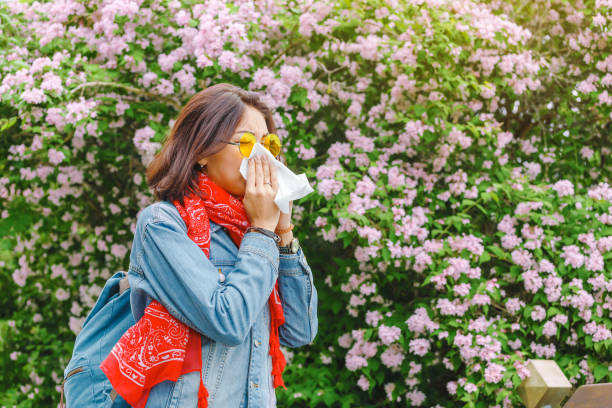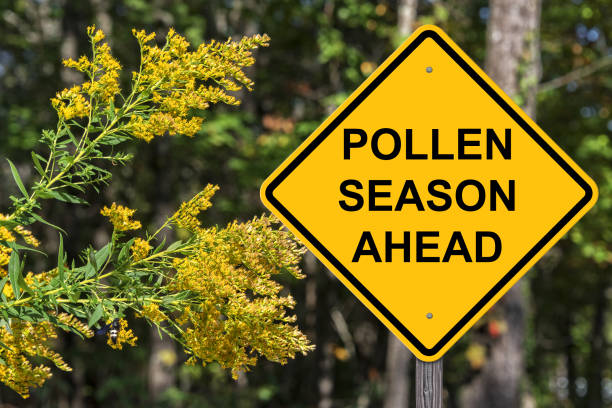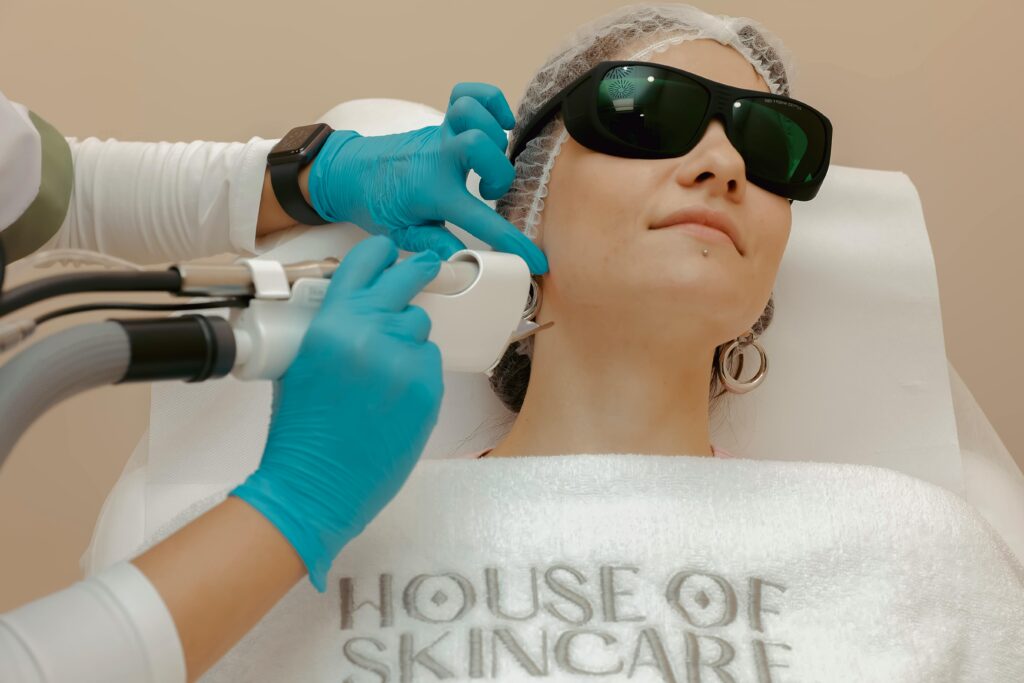Seasonal allergies (See Amazon) can have a huge impact on the skin. When pollen, mold, or other allergens trigger an allergic reaction, this can lead to itchiness, redness, and inflammation.
If you have sensitive skin, you’re even more likely to experience the symptoms of a seasonal allergy, and you’ll need to take some specific steps to protect your skin.
If you have these allergies, you might need to consider what pollens you might be allergic to.
Pollens come from many trees, grasses, and weeds, and can all cause allergy symptoms. In order to safeguard your skin, you’ll need to minimize your exposure to these allergens.

Limiting Exposure to Allergens

Allergens can be easily avoided with small adjustments to your daily routine.
For example, you should wear sunglasses and a hat (See Amazon) when it’s windy and pollen is in the air.
Washing your hair (See Amazon) and changing your clothes when you come inside can also help reduce your exposure to allergens.
Regularly dusting your home and washing your sheets (See Amazon) will also reduce the amount of allergens inside your dwelling. If possible, keep your windows closed and use an air purifier (See Amazon) to keep allergens out.
Managing Allergy Symptoms
If you have seasonal allergies and sensitive skin, you’ll want to avoid products that contain ingredients that commonly trigger an allergic reaction.
Alcohol-containing products, fragrances, and some preservatives can all be irritating to the skin. Instead, look for hypoallergenic brands (See Amazon) with simple ingredients to avoid drying or irritating your skin.
Many over-the-counter medications can provide relief from allergy symptoms. (See Amazon)
Antihistamines can help reduce itching and swelling, while decongestants can provide relief from a stuffy nose.
Nasal sprays and eye drops (See Amazon) are also available for symptoms of the eyes and nose.
However, it’s important to read the packaging and talk to your healthcare provider before taking multiple medicines at the same time to avoid an overuse of antihistamine and decongestant drugs.

Protecting the Skin

Keeping your skin properly moisturized (See Amazon) is important when you have seasonal allergies.
If you sweat, take a shower or wash your face as soon as possible to wash off any allergens.
Make sure to use a gentle, scent-free cleanser (See Amazon) and then apply a thick, fragrance-free moisturizer to help alleviate any irritation.
When it’s warm outside, you should use a good sunscreen to protect your skin from UV radiation.
Look for sunscreens that contain titanium dioxide or zinc oxide to ensure you are properly protected. (See Amazon)
Sunscreens that contain fragrances and preservatives can be irritating to the skin and should be avoided.
Conclusion
Seasonal allergies can be a real nuisance for anyone, and if you have sensitive skin, they can make an already annoying condition even worse.
In order to keep your skin looking and feeling great even during allergy season, you’ll want to limit your exposure to allergens, use appropriate over-the-counter medications, and take extra steps to protect your skin from getting irritated.
Additionally, look for hypoallergenic products and make sure to choose sunscreens and other products that won’t irritate your delicate skin.
By following these steps, you can keep your skin looking and feeling its best all season long.
